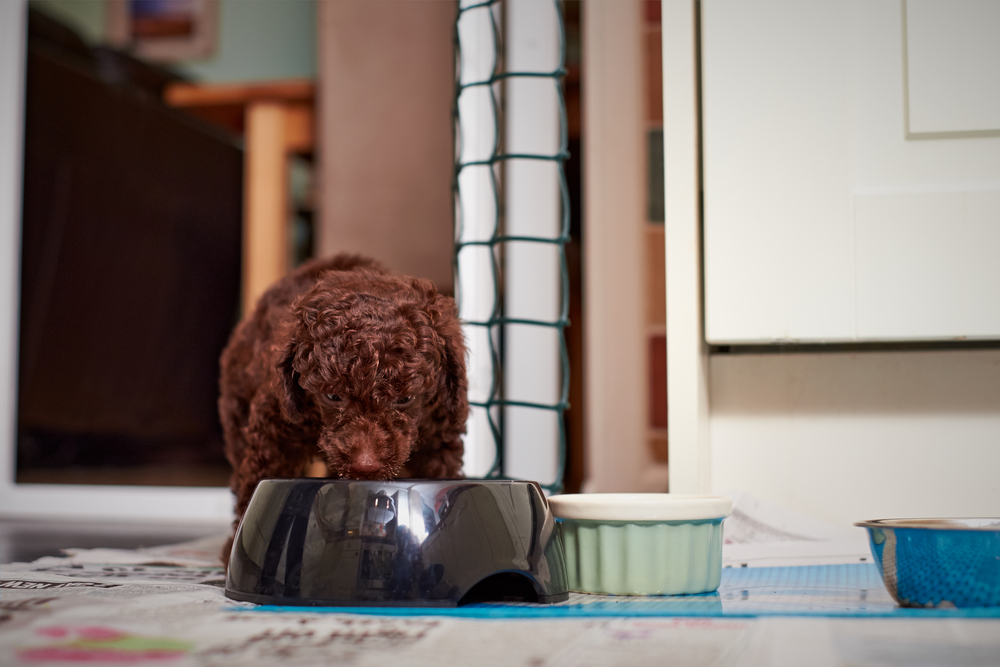Nutritional yeast is all the rage among health-conscious eaters looking for delicious and nutritious ways to zest up their meals. With its generous mix of protein and essential nutrients, you’re right to wonder if you can offer this vegan-friendly ingredient to your dog. Luckily, our dogs can safely enjoy all the benefits of nutritional yeast!
While nutritional yeast is a safe and healthy addition to your dog’s diet, picking the proper product and integrating it into a balanced diet can be confusing. Learn how your pet can benefit from this tasty supplement as we explore whether dogs can eat nutritional yeast.

What Is Nutritional Yeast?
Nutritional yeast, or “nooch,” is a deactivated yeast derived from the Saccharomyces cerevisiae fungus. The yeast grows on a sugar-rich medium, such as molasses or cane, and undergoes harvesting, rinsing, and heating to eliminate its leavening properties before it is packaged and sold.
The pasteurization process differentiates nutritional yeast from baker’s yeast, the yeast used for baking bread. Deactivation through heating makes nutritional yeast safe to eat because it won’t ferment in the body. Active yeast produces carbon dioxide and ethanol in the gut, potentially causing bloat, alcohol poisoning, and a host of resulting health issues for dogs.
Nutritional yeast supplies a cheesy, savory taste to meals and snacks. Available in powders, small flakes, or extracts, it’s perfect for sprinkling on salads, pasta, sauces, potatoes, and much more. For dogs, nutritional yeast provides a flavor-enhancing topping to make meals more enticing and a bit more nutritious.

Why Can Dogs Eat Nutritional Yeast?
Nutritional yeast is a nutritional powerhouse full of unique benefits that are uncommon to many vegan ingredients. It’s free of extra fat or sugar, and there’s no gluten. When fortified, nutritional yeast gains abundant B vitamins to enhance its benefits to your dog’s immune system, cognition, and nervous function.
Not all nutritional yeast will include the same amounts of vitamins and minerals during manufacturing. However, you can compare labels to ensure you get the most nutrition and value. The following are the essential perks a high-quality nutritional yeast could offer your dog.
Rich in Protein
Nutritional yeast separates itself from many vegan-friendly foods by being a complete protein. It has all ten essential amino acids a dog needs to build and maintain muscle, support healthy skin and coat, and improve immune health.
One hundred grams contain 60 grams of protein, adding a substantial boost even in the small amounts you may add to your dog’s food.

B Vitamins
Nutritional yeast comes loaded with B complex vitamins, helping the body metabolize food into energy. Manufacturers frequently fortify their products with significant amounts. One serving often meets multi-day nutritional requirements for humans. Dogs see similar benefits from the diverse vitamin load, which includes:
- Thiamine (vitamin B1) for nerve and muscle function
- Riboflavin (vitamin B2) for metabolizing fats and carbohydrates, processing other B vitamins, and fighting free radicals
- Niacin (vitamin B3) for nervous system and brain function, healthy skin, and healthy digestion
- Pantothenic acid (vitamin B5) for endocrine function and red blood cell production
- Pyridoxine (vitamin B6) for the immune system and brain development
- Folate (vitamin B9) for blood cell development and cell growth
- Cobalamin (vitamin B12) DNA and red blood cell synthesis
Antioxidants
We can’t overlook nutritional yeast’s antioxidant traits, as high glutathione and selenomethionine levels help fight free radicals. The compounds work together to detoxify the body, support liver and thyroid function, and protect cells against common diseases like cancer, heart disease, and kidney failure.
As dogs age, supplemental antioxidants like these can support stronger muscles, bones, and organs for longevity and improved quality of life.

Additional Nutrients
Nutritional yeast includes ample fiber and minerals like iron, calcium, potassium, and selenium to support the immune system, circulation, and nerve function. It also supplies a healthy dose of beta-glucan. This carbohydrate enhances the immune system, with various additional benefits for the joints, digestion, and allergy relief.

How to Feed Nutritional Yeast to Your Dog
Although nutritional yeast is generally safe and healthy for dogs, you should check the ingredients, compare products and speak to your veterinarian first. The yeast is meant for people, so it can sometimes contain added flavors that may work for us but cause GI upset and other issues for dogs. When checking labels, ensure there are no seasonings or additives beyond B complex vitamins.
💛 🐶 Speak To a Vet Online From the Comfort of Your Couch!

If you need to speak with a vet but can’t get to one, head over to PangoVet. It’s an online service where you can talk to a vet online and get the personalized advice you need for your pet — all at an affordable price!
As a flavor enhancer to entice your dog to eat, nutritional yeast doesn’t need to factor heavily into your dog’s diet. Your dog’s commercial food will have all the balanced nutrition your dog needs, so nutritional yeast isn’t critical for their diet; it only adds a healthy and occasional bonus.
With that in mind, you’ll rarely have much reason to offer more than a teaspoon to your dog. You can sprinkle some over your dog’s food when serving their meals, but begin with a small amount to see how your dog likes it and monitor for any adverse effects.

Conclusion
Nutritional yeast won’t factor heavily into any meal, but the healthy vitamin, mineral, and protein levels will only benefit your dog. From their immune function and cognition to their skin and coat, dogs feel the positive effects inside and out. If you have a picky eater who might benefit from this cheese substitute, talk to your vet today about whether your dog can have nutritional yeast in their diet.
Featured Image Credit: Michelle Lee Photography, Shutterstock
